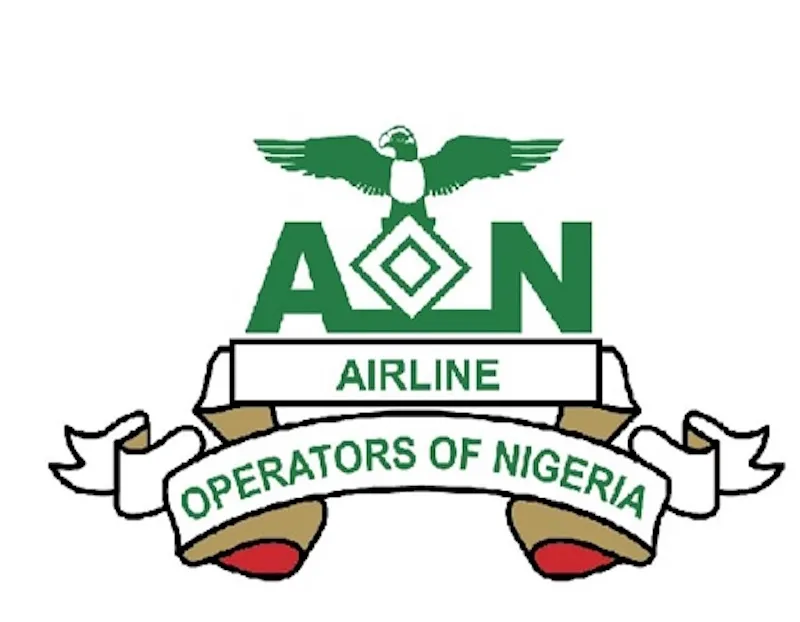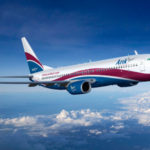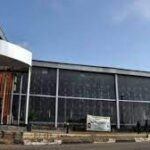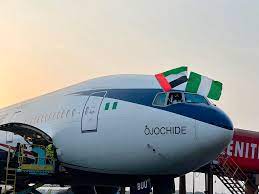
Three factors have continued to stand out among many other factors that impede the success of airline operations in Nigeria, which include aircraft leasing, high insurance premium and fluctuating price of aviation fuel. In order to eliminate the challenges, there must be collaboration between the airlines and the federal government
Over the years Nigerian airlines have complained about the difficulties they faced in leasing aircraft and recently some lessors have made it clear that they would not dry lease aircraft to Nigerian carriers.
The decision tends to retard the ability of domestic operators to have long term acquisition of aircraft and also to curb the high cost of wet leasing aircraft. In addition, wet leased aircraft come with cockpit crew so airlines do not have the opportunity to horn the skills of their own technical personnel and wet leased aircraft is most often for the short term.
Airline Operators of Nigeria (AON) brought this to the fore recently at the National Aviation Conference (FNAC) organised by the Federal Airports Authority of Nigeria (FAAN) in Abuja with the theme: “Sustainability of the Aviation Industry in Nigeria.”
In the paper presented by the Vice President of AON and the Chairman/CEO of Air Peace, Allen Onyema, the operators said they were not able to lease aircraft because they have been stigmatised.
“Even to wet lease, the conditions are so tough, making it impossible for airlines in Nigeria to succeed with ease. The foreign airlines borrow money at two per cent single digit, but in Nigeria we borrow at 26 per cent. And when we tell the outside world that we pay 26 per cent interest, they scream. They find it unbelievable but that is the truth. So how do you survive under that kind of situation? So, equipment leasing is very important, if the government can set up the infrastructure to enable equipment leasing company, that will be very, very welcome but it should be run by the banks, not to be run by the government because the government has no business doing business. They can set it up so the banks can scrutinize whoever comes forward to access those loans. But equipment leasing is the way to go. We cannot afford to pay cash for everything we want to acquire in aviation,” Onyema said.
Multiple Taxes
He said that Nigerian airlines were beset by other challenges, which include high interest rate, high operating cost and multiple charges in addition to lack of understanding of the state of Nigeria’s local financial institutions and, of course, forex challenges.
“The forex is not even constant, so you can’t even plan with it. Your ticket sales are in naira and everything about aviation is in dollars. So, at the end of the day, the volatility of the forex regime does not allow you to plan adequately. You need to pity not just the airlines but anybody in this industry. The one that is even very disturbing is the insurance challenges. Like I said, Nigeria has been stigmatised, they will tell you that Nigeria is unsafe, it is all lies. They do this deliberately in order to make our premium go high. The premium a Nigerian airline pays to insure one Boeing 737, the legacy airlines in the first world nation, they will use the same premium to insure three aircraft. So how do you compete in such an unfair world? How do you compete? And this is deliberate; they will tell you it is unsafe, meanwhile, they are here working.
“We also have limited operating hours, as most of the airports are sunset airports (flights cannot land there after 6:00 pm). The equipment you buy with so much money at 26% interest rate is supposed to be flying at least 18 hours a day but you find yourself flying between seven hours and they close shop in most of the airports. And this is why we feel that the Federal Airports Authority of Nigeria should be given the free hand to manage their own finances. I call on the government to allow them to run their own game, same for the Nigeria Civil Aviation Authority (NCAA). Even the salary scale of aviation workers should not be under the civil service regime. It should be different and should reflect what obtains in the industry, so that their salary should compete with that of the airlines. So, the operating environment in Nigeria and its infrastructure deficit put a huge burden on domestic airlines particularly, also Nigerian airlines are stigmatized for issues that are due to no fault of theirs. Accessing finance therefore becomes a Herculean task and the forex regime further worsens the problem. If these and other challenges highlighted above are addressed, Nigerian airlines and other participants in the industry would excel,” he said.
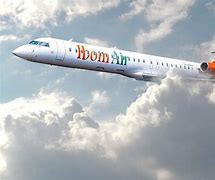
In the paper titled ‘Aviation Facilities Equipment Leasing and Financing’, the AON Vice President lamented that the aviation industry in Nigeria had been faced with a lot of problems, which have been a challenge to the survival of most airlines beyond its first 10 years of operation. He disclosed that aviation industry being a critical sector of the national economy contributes 0.5 per cent (2022, NBS) to the GDP of Nigeria but has defied all solution despite its potential to significantly do more.
Onyema said that going by its geographical location in Africa and the world, Nigeria should naturally serve as a hub in the region and thrive, given its population, strategic location and economic size. Unfortunately, the country’s aviation infrastructure deficit amongst other challenges has hindered this from becoming a reality.
“For instance, to date, there is no airport in Nigeria that is equipped with a proper transit facility for people to seamlessly transit through our airports to other destinations in and around Africa and to the rest of the world. This would have enabled efficient passenger and cargo transfers. The infrastructure is largely inadequate and not able to compete with facilities in other parts of the world and some parts of Africa,” he said.
He said the International Civil Aviation Organisation (ICAO) standards provides for a 45-minute window for arriving passengers to disembark, clear customs, Immigration and to retrieve their baggage. Unfortunately, for a variety of reasons this is not the case at our airports.
Airport Congestion
The Chairman and CEO of Air Peace also observed that due to the fact that the four major airports in the country have exceeded the capacity for which they were designed, both airlines and passengers are daily subjected to undue congestion resulting in delays. In addition to the terminal capacity constraints outlined above, the available airside facilities (apron and parking bays) are typically clogged up because they are not adequate to provide the real estate required to accommodate the fleet of the domestic airlines.
In the area of navigational aids, Onyema noted that most of the historical stock of Nigeria airspace Management Agency (NAMA)’s ground-based inventory of navaids, which hitherto drove the air space management system, is inadequate.
Passenger’s Facilitation
He said Nigeria’s airports would need significant improvement in the provision of security screening posts and equipment, noting that there are also inadequacies in the manning levels of trained aviation security personnel. He added that the current passenger lounges and departure halls at the nation’s various Airports have exceeded their design throughput capacities. Similarly, the scheduling of airline flights in and out of the airports does not allow for seamless optimal utilization of the available resources.
Onyema said the Common User Terminal Equipment (CUTE) system, which is pivotal to the hitch-free management and facilitation of passengers, is lacking at Nigeria’s major airports and where available, remained grossly inefficient.
“The world today is moving away from such systems to the use of satellite-based systems (example, Satellite Based Augmentation System (SBAS) as a primary means of air navigation which of course NAMA is also embracing. NAMA, in complementing its migration to satellite based navigation, should immediately commence the development and rollout of Wide Area Augmentation Systems (WAAS) in line with international dictates for the seamless transition to the Future Air Navigation System (FANS), whilst retaining the terrestrial based system as backup,” he said.
All these limitations, he said, should be taken into consideration in the plan to concession the airports.
“In the concession of the airport system as currently being contemplated, there should be more clarity as to the scope and structure of the process. However, for the sake of operational efficiency the model can be explored, taking due cognisance of the existing concession agreements operated by various concessionaires at these major airports to avert future dispute,” Onyema said.
MRO Facilities
The AON Vice President said the establishment of a viable Maintenance, Repairs and Overhaul (MRO) is unarguably important for the effective and economic operation of airlines in Nigeria; unfortunately, the industry currently lacks any of such for a variety of reasons, noting that such MROs would address the fundamental problem of capital flight and backward integration.
“However, we do have in existence hangar facilities located in such places as Lagos, Port Harcourt, Uyo and Kaduna which could be equipped specifically for the most common aircraft type in the country. Unfortunately, these facilities were designed and built primarily for aircraft hangar as they are not equipped with any special tools and workshops,” he said.

Local Production of Jet A1 Fuel
Onyema was of the opinion that fuel would constitute approximately 40 – 60 per cent of an airline’s direct operating cost, depending on the age of the aircraft fleet in operation. Unfortunately, as a result of extraneous factors completely out of the control of operators, airlines are exposed to the vagaries of the volatility of the world oil market, making any long-term strategic planning impossible and completely wiping out any possible profits with inherent spikes, adding that the situation is further exacerbated by the sole reliance on importation by the local suppliers, resulting in erratic and haphazard supplies. This has worsened the dispatch reliability of airlines, not to mention the adverse impact it has on their aircraft assets utilization and consumer experience.
Aircraft Financing
One of the major challenges that Nigerian airlines face is aircraft financing. For whatever reasons, they have found it difficult to secure credit facilities from international financiers and local financing is poor due to lukewarm attitude of financial institutions like banks.
Onyema explained that aircraft can be financed in a variety of ways, including the following: by getting a direct loan facility from commercial banks or financial institutions, or export credit agencies. And such facilities are usually secured by way of a mortgage taken out on the aircraft being financed or other cash instruments that can
be secured with the financial institution; by leasing an aircraft through an operating lease or a finance lease; or via a capital markets transaction through the issuing of bonds or notes secured by a mortgage on the aircraft. But the most common forms of financing peculiar to the Nigerian aviation sector are secured loans (at very high rates of 27 per cent or more), and leases.
He said under this arrangement, the owner or lessor acquires or owns the aircraft leased to an airline or other lessees and substantially retains all the risks and rewards related to ownership of the aircraft. At the end of the lease term, possession of the aircraft reverts back to the owner or lessor who can either re-lease or sell it.
“Operating leases come in various forms namely, ‘dry lease’, ‘wet lease’ or a ‘damp lease’. A dry lease typically involves the lessor or aircraft owner providing the aircraft to the operator and allowing the operator full operational control of the aircraft to including crewing, operations, maintenance, insurance, scheduling and assuming all associated costs of such.
“The wet lease saddles the aircraft owner with the full responsibility of operating the aircraft. As such responsibility for aircraft, crewing, maintenance and insurance are borne by the lessor. In this case only the commercial control of the aircraft is the responsibility of the lessee. The damp lease is a cross between the operating dry lease and the wet lease wherein the lessor and the lessee have shared responsibilities which could mean any of the obligations stated above depending on the strengths and capabilities of each party for optimum synergy.
“In a finance or capital lease, the aircraft owner or lessor leases the aircraft to an operator on terms to cover the base lease rental value and aircraft residual value over a fixed tenure. At the end of this tenure, the lessee has the offer of first refusal to purchase the aircraft at a pre-determined residual value, taking cognizance of the contribution made in the course of the payment of the monthly lease rentals. This contribution is credited towards the aircraft purchase lessee,” Onyema explained.
He said there were several challenges faced in aircraft financing in Nigeria. He listed them to include: high bank interest rates, high operating cost and multiple charges, lack of understanding of the sector by local financial institutions, forex challenges, leasing conditions, which is stringent for Nigerian carriers because Nigeria is designated as high country risk, insurance challenges and limited operational hours.
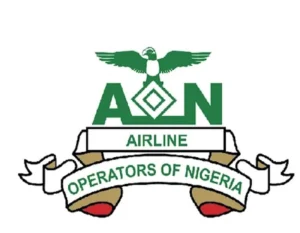
According to the AON Vice President, the operating environment in Nigeria and the infrastructure deficit put a huge burden on domestic airlines particularly. Also, Nigerian airlines are stigmatised for issues that are due to no fault of theirs.
“Accessing finance therefore becomes a herculean task and the forex regime in the country further worsens the existing challenges,” he further said.
If these and other challenges highlighted above are addressed, Nigerian airlines will be more competitive and able to hold their own among other foreign carriers.


